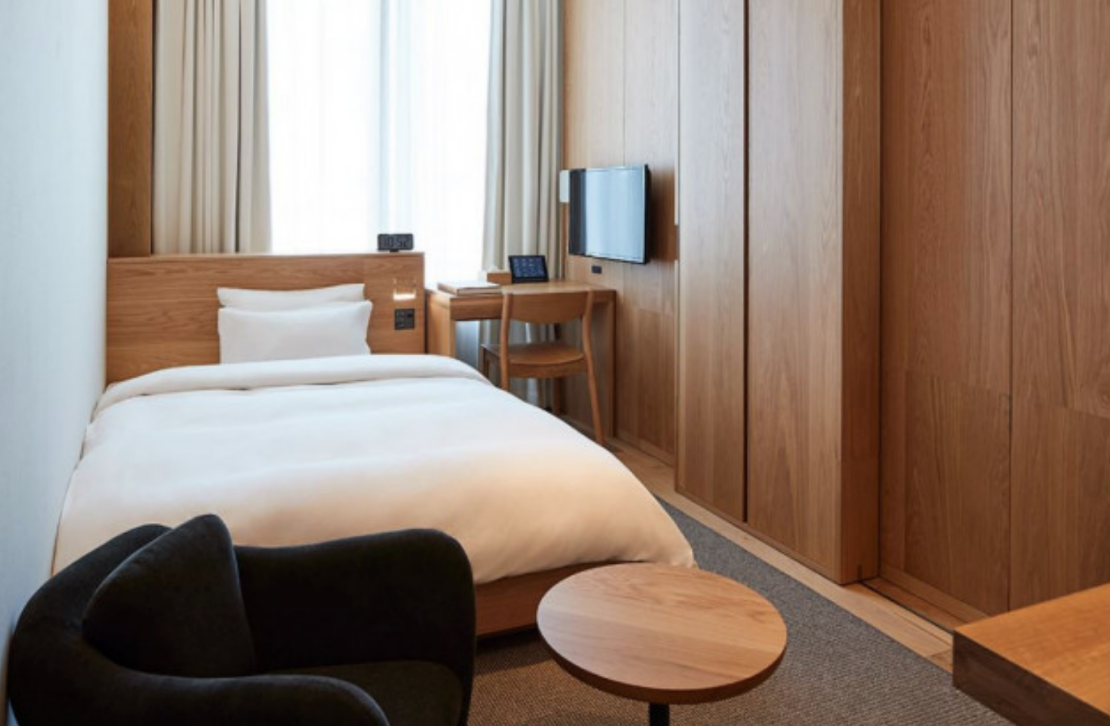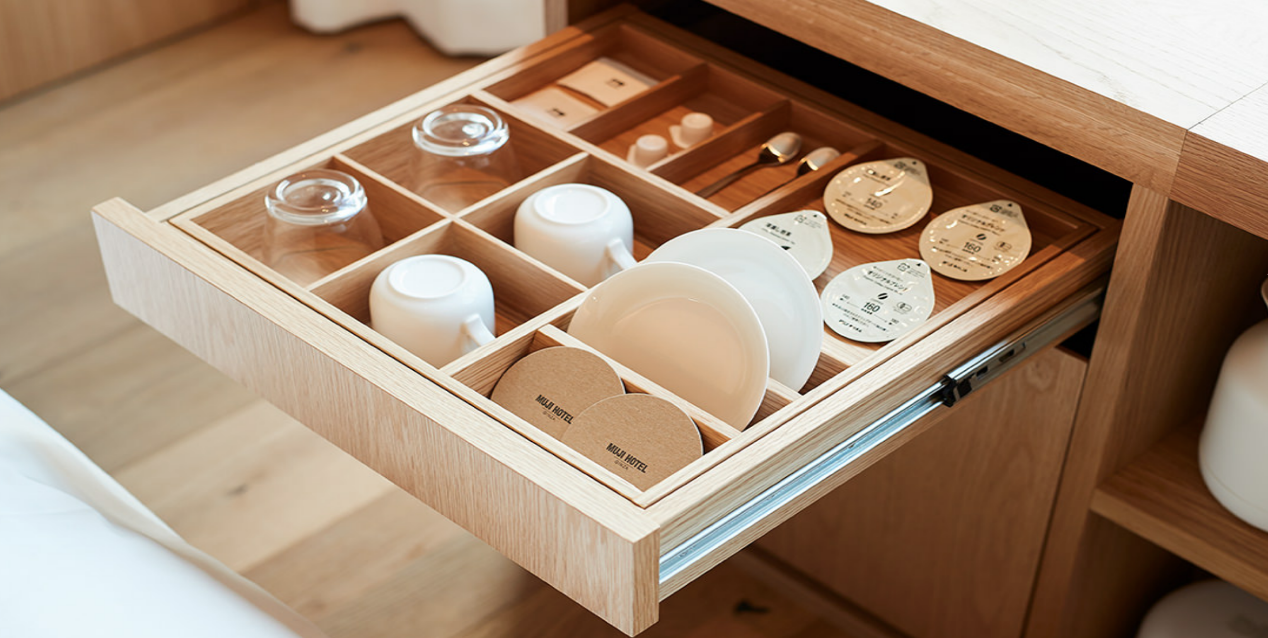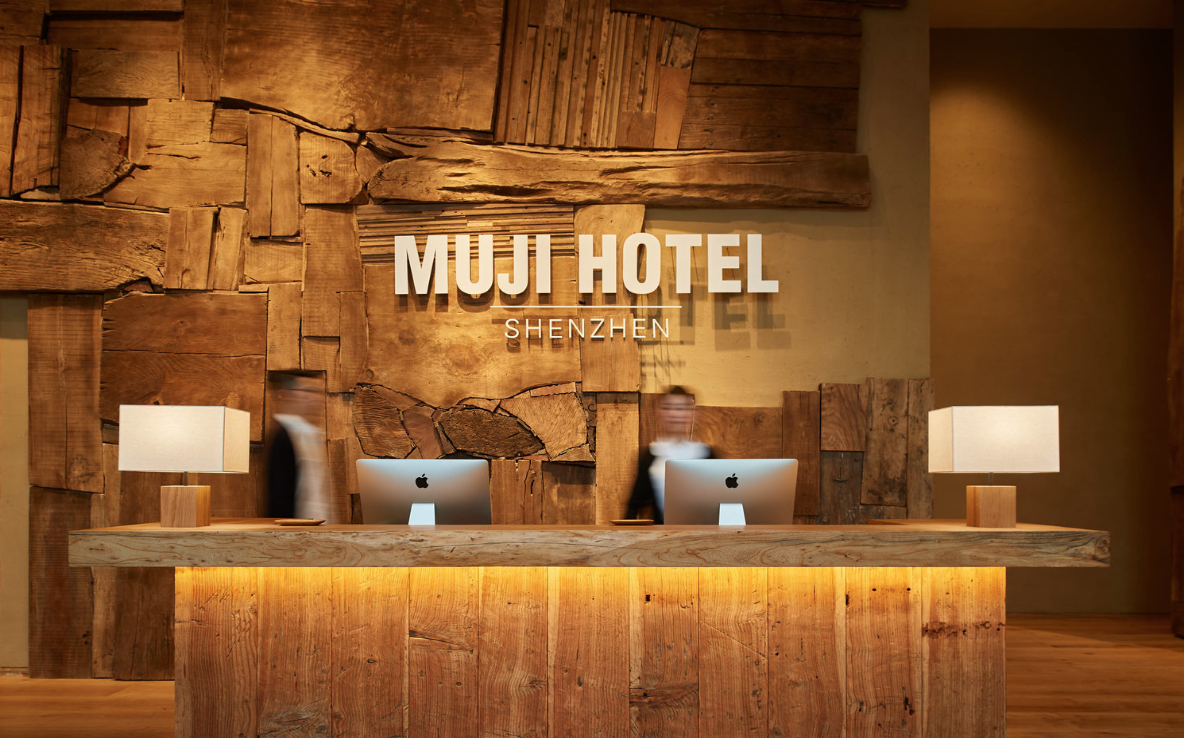From retail giant to innovative hotelier
Mujirushi Ryohin, or more colloquially: Muji, is a Japanese retail conglomerate that sells a wide variety of consumer and household goods in 28 countries across the globe. To give an idea of the scale, in the late 2000s Muji was producing, selling and distributing over 7000 different products worldwide. Distinguished by its forward thinking minimalist approach to design, and its exemplary waste management and recycling policies, Muji is one of the few companies that operates with a business ethic worth recognising. Now larger than ever, Muji has extended its reach into the hospitality industry with a distinctive take on a traditional design.
Most likely rooted in its continual and progressive need for development, Muji’s rapid transition from small homeware retailer to multinational conglomerate is a fascinating example of the versatility achievable when creative limits are minimized. That is why the "no brand" company's venture into the hotel space has generated a lot of curiosity and excitement within the industry.
Subtle intentions?

Whilst the inspiration behind this injection may lie in basic commerciality, it could also be speculated that the expansion had more subtle ulterior motives. In 2018, Muji opened their first hotel in Shenzhen China, with the idea of maintaining their non branded simple Japanese aesthetic. A design feature that could be conveniently catered for by none other than Muji’s very own homeware range. Soon after, another Muji hotel was opened in Beijing and plans made for building another new property.
It can be assumed that the Muji Hotels, whilst certainly generating significant revenue for the company, are perhaps more so, a lightly penetrative marketing tool employed to boost Muji product sales. If this is the case then this may just be the future of brand marketing for hotels - a simple and effective way to tangibilize a product without incurring extra costs. Food for thought.

A hotel with a flagship store
At the beginning of this year Muji announced the opening of a third hotel in the centre of Ginza, one of Tokyo’s most desirable boroughs. This venture is significant for the company, as it is not only a physical return to its Japanese roots, but it will also join in the celebration of the opening of the largest Muji store in the world situated on the lower floors of the same building.
Adhering to its minimalist philosophy, the 79 bedroom hotel will boast a practical simplicity that is often lost in the hustle and bustle of city living. Outlined as “anti-luxurious” and “anti-cheap” by the company itself, the Muji hotel Ginza is situated on the 6th to 10th floors of Muji’s new global flagship store that was opened in April of this year. The rooms are congruent with the Muji ideal of thoughtful environmentalism and simplicity and as a result they have incorporated several recycled products into the design - most of which can be purchased in the lower floors of the same building.
Muji hotel also promises a rate consistency that is not visible elsewhere in the industry, with no seasonal or weekend fluctuations, “there are neither exorbitantly priced nor superfluent services on offer”. And according to their website “For those who visit Muji hotels, every detail, from the texture of the towels to the layout of outlets and switches, to the restaurant menus, helps form the bedrock of a successful trip”.

A reversal of modern day trends
To conclude, In a time where hoteliers must support the growing demand for excitement and individuality felt by their guests, it would make sense to assume that the simplest solution would involve a relative complexity and intricacy in their design. However, Muji in a bold juxtaposition, has reversed the trend and sold its accommodation as a refreshing revival of the elegance of simplicity, similar to what was known before the technological revolution. So whilst its motives may be questioned, the industry is thoroughly excited to see where Muji Hotels will take this concept, and we’ll keep a close eye on where they go to next.






